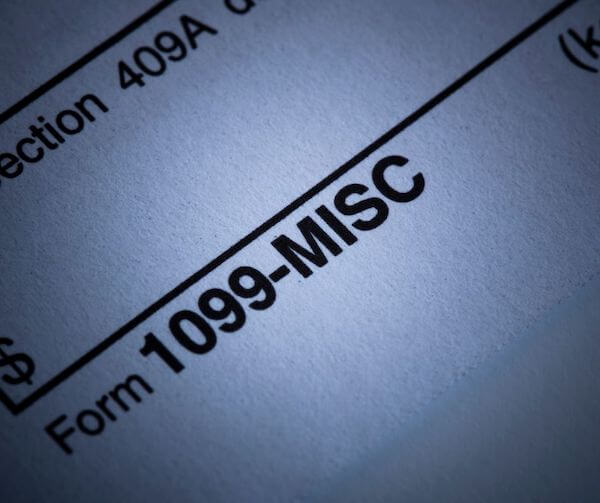It’s that time of year again. No, we don’t mean the holidays. We’re talking about the upcoming 2024 tax return season.
Here are 8 things to watch for as you are preparing for the upcoming tax season.
1. Tax Brackets
With inflation still a real issue in our economy, there’s no doubt that you’ll be hoping for a refund.

You may not know it, but the IRS announced tax inflation adjustments in November 2023 that went into effect in 2024. An additional 5.4 percent increase was tagged on to all tax rates, which means that more of your income will be subject to a lower tax rate and that will obviously be reflected in your return.
For single taxpayers and married individuals filing separately, the standard deduction rose to $14,600, up $750 from tax year 2023. For married couples filing jointly for tax year 2024, the deduction increased to $29,200, up $1,500 from tax year 2023. For heads of households, the standard deduction went up $1,100, totaling $21,900.
2. Higher Retirement Plan Limits
Each year, the IRS sets higher limits on how much you and your employer can contribute to your 401(k). Inflation also resulted in changes that were made in 2023 and which will affect your returns in 2024.

The 401(k) contribution limits for employees were upped to $23,000 from $22,500 in 2023. If you are over 50, you can make “catch-up” contributions each year, which is $7,500 annually. For employee and employer match 401(k), the contribution limits amount to a combined $69,000, not including any catch-up contributions.
3. The 1099-K Change

If you are a freelancer who bills via Venmo or any of the other digital payment platforms, or perhaps you sell tickets on apps like SeatGeek, you’ll receive a tax form listing your activity. The limit that requires reporting has been dropped from $20,000 to $5,000 for 2024 tax return purposes.
4. Retirement Fund Distribution Changes
For those of you who might have turned 73 in 2024 or will do so soon, you can now keep money in a tax-deferred IRA or 401(k) for another 12 months before minimum distributions are required. Presently, Roth 401(k)s are no longer subject to required minimum distributions.
5. Child Tax Credit Changes
There’s still hope that the U.S. Senate may pass the $78 billion tax legislation that was okayed by the House of Representatives at the beginning of 2024.

That piece of legislation includes a newly expanded federal child tax credit (CTC) and various tax breaks for businesses.
Over the last few months, the tax package has been stalled in the Senate, but there is new hope that it may become law. If so, the tax bill will include provisions to adjust the child tax credit for inflation and allow families to use their prior years’ income to calculate eligibility.
Missouri Republican Senator Josh Hawley has called for the child tax credit to increase by 150 percent, which would translate to a maximum of $5,000 per child, doubling the current limit.
6. Energy Efficiency Credits

If you’ve made energy-related upgrades in 2024 (think solar panels, more efficient windows, and heat pumps), you should be aware of the tax credits that apply to those enhancements. The Residential Clean Energy Credit and the Energy Efficient Home Improvement Credits both apply in this case and using them can help offset costs.
7. Health Insurance Penalties and Deductions

If you are self-employed, you can deduct 100 percent of your health insurance premiums when filing your 2024 tax returns. In addition, be sure to report any contributions that you made to your Health Savings Accounts (HSA) for added tax savings.
8. Capital Gains and Losses
If you sold stocks, real estate or any other assets this year, be sure to watch for the capital gains taxes that you will incur as a result. Consider tax strategies like tax-loss harvesting, a mechanism that involves selling securities at a loss to offset the amount of capital gains tax that you might owe from selling profitable assets.

In conclusion, unless Congress acts later this year, 2024 and 2025 are the final two years before the tax laws are set to roll back to the way they were in 2017, the result of the Tax Cuts and Jobs Act (TCJA).
With that in mind, we urge you to take advantage of the rules before this change takes place.
Key Tax Deadlines to Keep in Mind
As a reminder, below are the dates that you need to be aware of for the 2024 filing season.
Filing Deadline: April 15, 2025 (unless extended for holidays or emergencies).
Extension Deadline: October 15, 2025, if you file for an extension.
Quarterly Taxes: If you are self-employed, make sure that your quarterly payments are submitted on time.
As always, the team at Tuffy & Associates is here to help with any tax-related or other financial matters. Don’t forget to drop us a line at [email protected].


